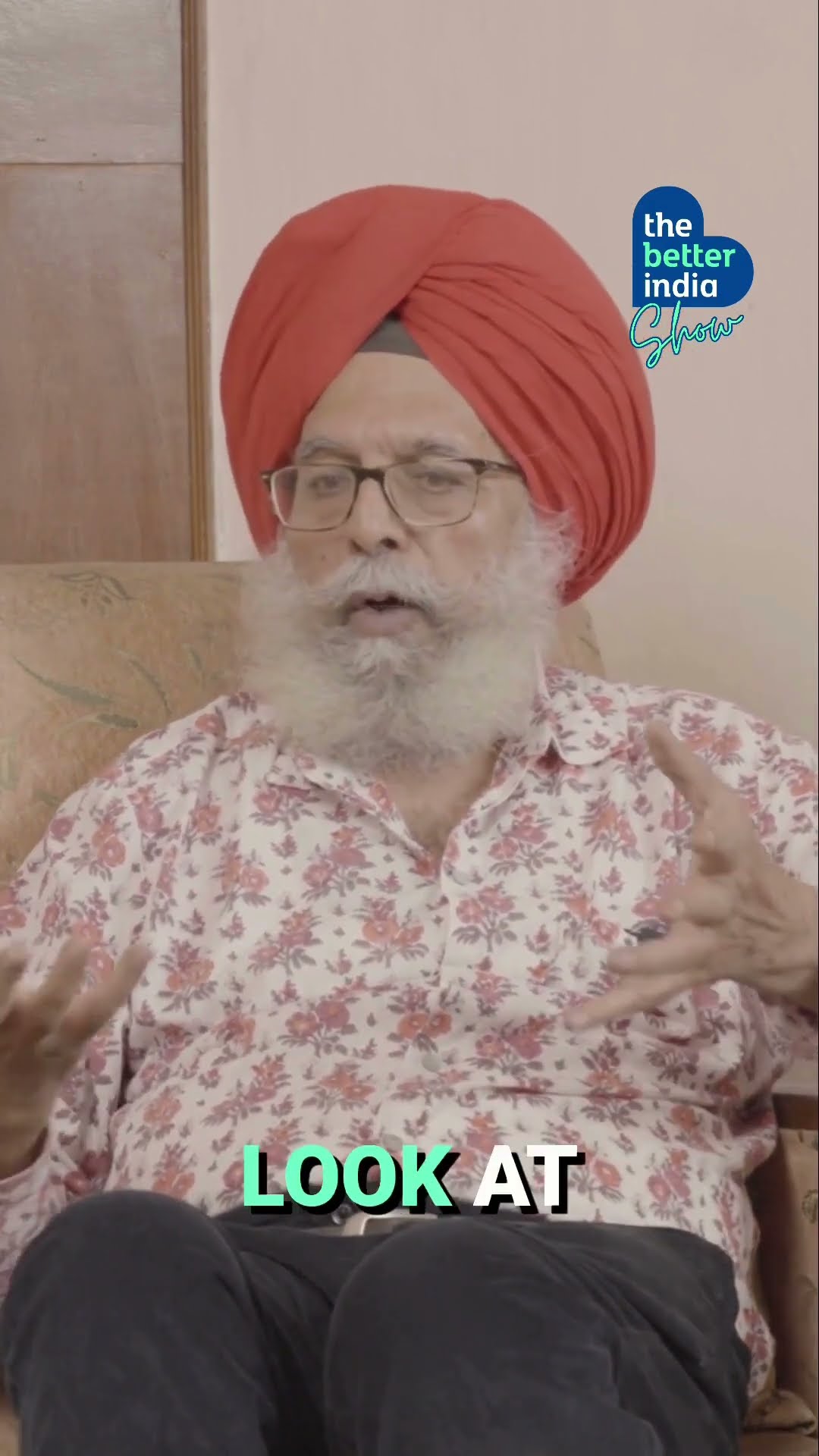Ujjain IAS Officer Restores Historical Pond With 125 Volunteers & No Govt Funds
Anshul Gupta, the commissioner of the Ujjain Municipal Corporation, MP, restored a once-dilapidated pond, Yam Talaiya, with the help of volunteers. The pond now has a raised water-holding capacity.
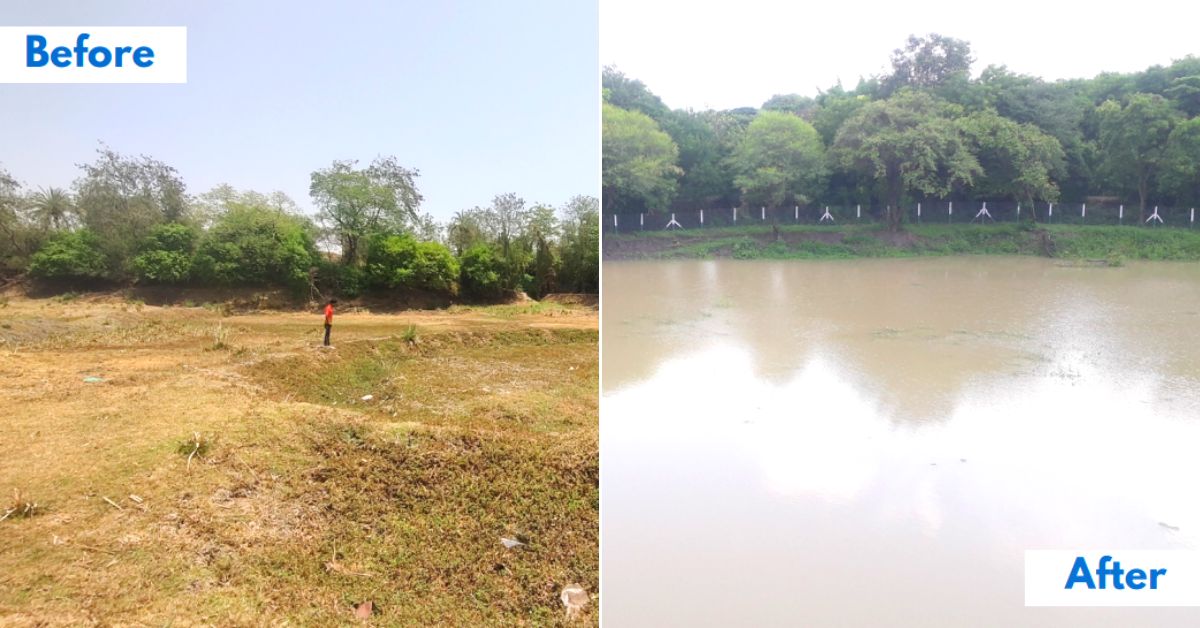
Anshul Gupta, a 2016-batch officer of the Indian Administrative Service (IAS) became commissioner of the Ujjain Municipal Corporation, Madhya Pradesh in late 2021.
One of the first tasks he undertook was to restore a once-dilapidated pond called Yam Talaiya on the outskirts of the temple city Ujjain, located on the banks of the Kshipra River. Measuring 4.2 acres, it’s a secondary pond which flows from the primary Vishnu Sagar Talab and channels from nearby farm fields.
This was once a pond of great importance to farmers residing nearby and the Chitragupta Mandir, a Hindu temple associated with the birthplace of Lord Chitragupta — the deity entrusted with keeping records of deeds committed by human beings in their sojourn on Earth.
However, the pond suffered from years of negligence, resulting in excess deposition, which in turn reduced its water-holding capacity by a significant margin.

Making matters worse, invasive weeds began dominating native species, and encroachments from nearby farm fields choked the very life of this pond. In other words, what Commissioner Anshul Gupta found was a pond in desperate need of restoration.
“Upon visiting the main Vishnu Sagar Talab, I discovered a stark difference between primary and secondary ponds. I visited the temple as well, where the resident priest told me the significance of this temple from ancient times. In past excavations, ancient idols were found at the secondary pond, indicating the location’s rich historical value,” recalls Anshul Gupta, who was appointed commissioner in September 2021, speaking to The Better India.
“The Yam Talaiya pond was totally dry and filled with mud and silt. During my previous posting as a CEO, Zila Panchayat, Umaria district, I had the experience of restoring approximately 30 water bodies under a variety of government schemes. Given my experience, I thought I should do something for this important pond. Following this site visit, I reached out to the Environmentalist Foundation of India (EFI), a non-profit environmental conservation group,” he adds.
He asked them whether they could study the site and come up with a plan. In December 2021, the EFI organised a series of surveys, followed by many rounds of discussions.
In close consultation with Commissioner Gupta, they came up with a “scientific, environment-friendly desilting and restoration plan”. To execute this plan, they invited other local non-profits, social organisations and even colleges through social media. Eventually, around 125 volunteers turned up. Together with the EFI and local administration, they began the restoration process.
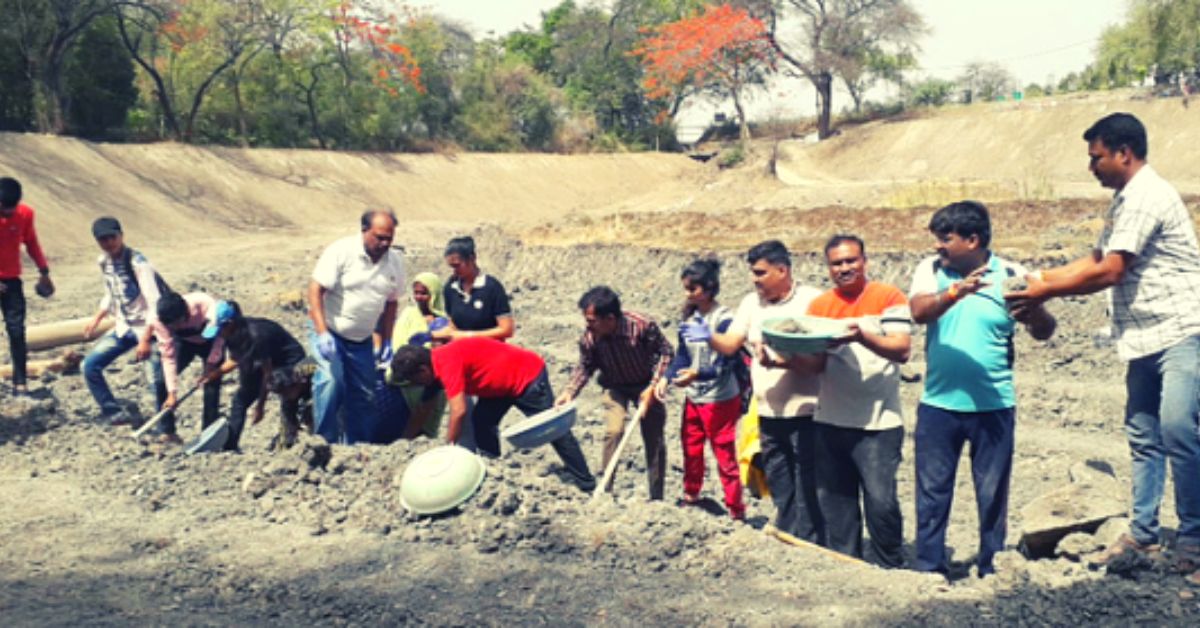
What’s more, not a single rupee of government funds was used in the restoration process. The volunteers engaged in the pond restoration, wall painting, plantation and even a documentary screening drive to sensitise the public about the water body. Meanwhile, the total cost of restoring the pond, amounting to Rs 60 lakh, was raised through a variety of initiatives.
While Rs 10 lakh was raised through CSR (corporate social responsibility) funds, the rest came from a variety of private donations.
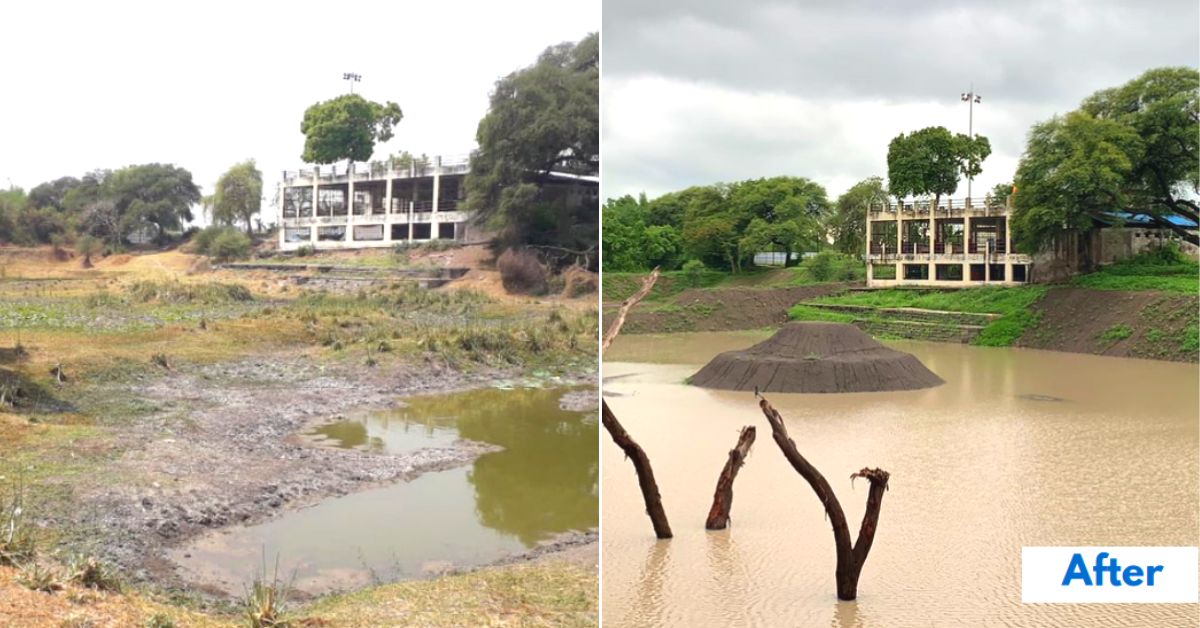
Process of restoration
It began with de-weeding and garbage removal. According to a January 2023 document that EFI shared with The Better India, “The pond’s periphery and bed were covered with invasive weed species, which were dominating the native plant. They were removed using excavators. Approximately 0.75 acres of the area were cleared,” it noted.
This was followed by desilting. “An average of 4 feet of silt was removed using excavators. Desilting of the pond further helps in increasing the storage capacity and improving the groundwater percolation rate,” the document noted.
What did they do with excess silt excavated from the pond’s surface? It was shifted to the periphery to strengthen the embankments, which were raised to an average of 12 feet. This would help in increasing the water-holding capacity and mitigate floods during heavy rainfalls.
“New embankments were constructed for a length of 540 metres, which will define the boundary of the water body and prevent encroachments,” the document noted. In addition, sedimentary wells for one acre were excavated to capture the silt from the runoff, so that the clean water will pass into the main pond. To help regularise the overflow, an earthen weir was constructed.
Meanwhile, according to the EFI document, “two recharge wells were [also] constructed with a narrow channel which helps in recharging the groundwater.”
Going further, nesting islands were also constructed to facilitate the habitation of flora and fauna of the pond like swans, ducks, fishes, turtles, peacocks, squirrels, etc. These islands act as a breeding ground for various insects, reptiles and birds in the pond.
But to ensure these restoration efforts don’t go in vain, a variety of civil works were also carried out — like repairs on the walkway, the existing ghat, and the construction of a wooden bridge to cross the inlet channel. Stone pitching on the road and side bund was also carried out to reduce soil erosion. To prevent encroachment and solid waste dumping, protective fencing was installed.
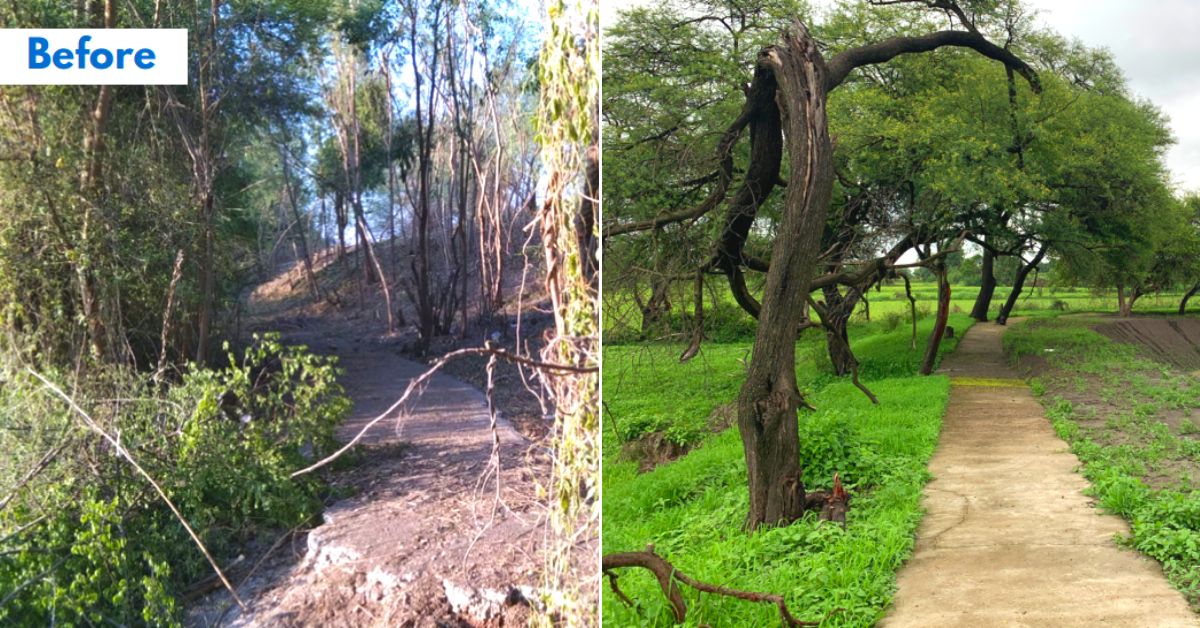
After restoration
In April 2022, the Government of India launched Mission Amrit Sarovar. This particular mission is aimed at developing and rejuvenating 75 water bodies in each district of the country.
In May, the Ujjain Municipal Corporation decided to use this pond as an example to build the first Amrit Sarovar of Madhya Pradesh. After eight months of effort, the restoration work helped raise the water-holding capacity of the pond by almost a third (additional 22,800,000 litres) from its original 67,989,600 litres, according to Commissioner Gupta.
“The Yam Talaiya (flowing from Vishnu Sagar) pond, which was once overtaken by weeds, excessive silt deposition and had weak structural integrity, is now restored to support the lifeforms that depend on it. The recent monsoons have brought the pond back to life with wildlife thriving. The pond now holds more water and wildlife than it did in the past,” he claims.
“The scrap desilting technique used by EFI has the unique benefit that only one-fourth of the pond will face siltation in the future. Overall, however, over 100 residents, including farmers residing near the pond, benefitted from the rising groundwater table, besides the influx of a variety of birds and reptiles, etc. Also, the number of pilgrims visiting this temple has risen to about 5,000 as well. This has already improved local tourism in the area,” he adds.
(Edited by Pranita Bhat)
(Images courtesy EFI and Anshul Gupta, IAS)
If you found our stories insightful, informative, or even just enjoyable, we invite you to consider making a voluntary payment to support the work we do at The Better India. Your contribution helps us continue producing quality content that educates, inspires, and drives positive change.
Choose one of the payment options below for your contribution-
By paying for the stories you value, you directly contribute to sustaining our efforts focused on making a difference in the world. Together, let's ensure that impactful stories continue to be told and shared, enriching lives and communities alike.
Thank you for your support. Here are some frequently asked questions you might find helpful to know why you are contributing?










